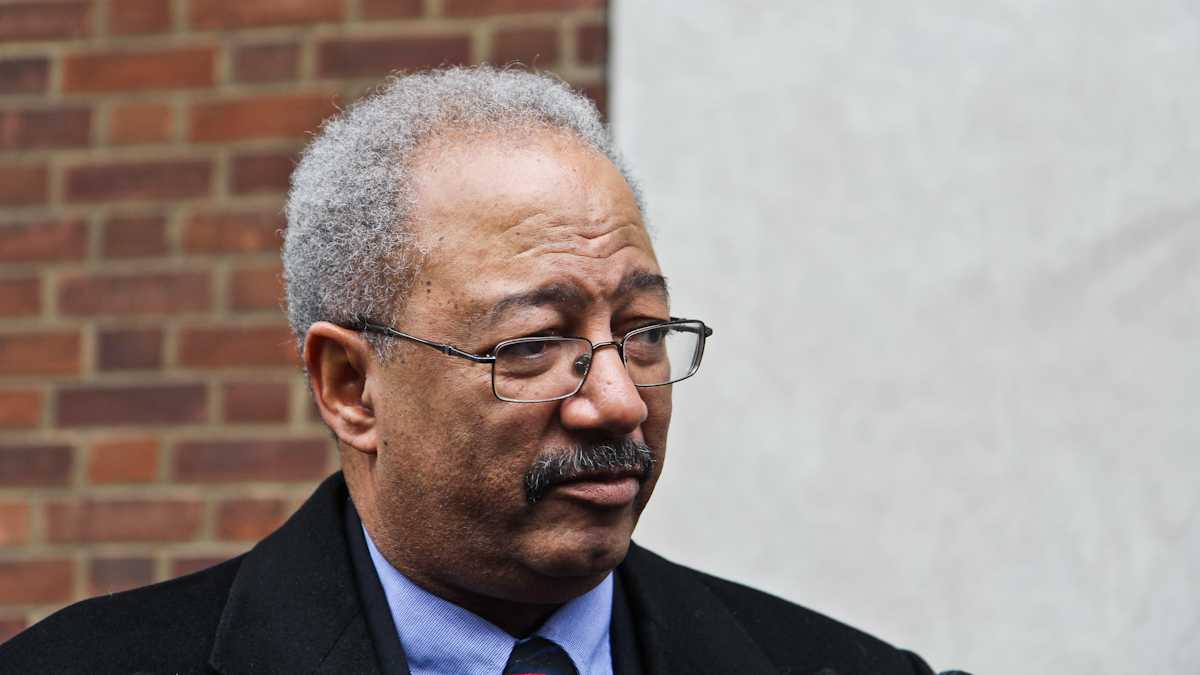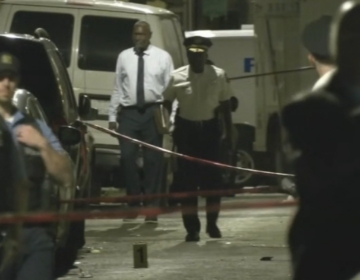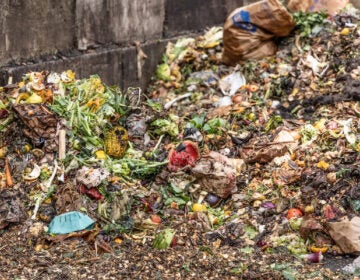Fattah continues to look towards appeals as way to avoid January prison date

(Kimberly Paynter/WHYY
Former U.S. Rep. Chaka Fattah is now asking the U.S. Court of Appeals for the Third Circuit to make him a free man while his lawyers fight his public corruption conviction.
A lower court rejected the same request last month.
In a recently filed motion, defense attorney Bruce Merenstein argues that the Philadelphia Democrat should stay out of jail because Fattah’s trial judge may have “abused” his discretion and violated Fattah’s Sixth Amendment right to a jury trial when he dismissed a juror on the second day of deliberations.
The 31-page document also says Fattah should remain at home because a U.S. Supreme Court ruling clarifying the definition of political bribery could potentially land him a new trial.
A ruling is expected sometime next week.
Fattah, 60, is scheduled to start his 10-year prison sentence on Jan. 25. It’s unclear where.
U.S. District Judge Harvey Bartle removed and replaced Timothy Miller after receiving a pair of notes from the jury foreman. One of them, signed by nine jurors, said the Lancaster man was “argumentative” and “incapable of making decisions.”
Bartle, in court documents, said he dismissed Miller because he felt he had “violated his oath as a juror” and was “intent” on hanging the jury “no matter what the law is, no matter what the evidence is.”
Miller allegedly told a deputy clerk in a hallway that he would hang the jury, though it’s unclear exactly what he meant. The comment effectively led to Miller’s dismissal.
Miller has said, on several occasions, that he was the only one of the jury who was unwilling to convict a defendant because he didn’t think federal prosecutors had presented enough evidence.
“I’m not just going to say guilty because everybody wants me to, and if that hangs this jury, so be it,” said Miller, according to court documents.
Merenstein argues that Bartle broke the “secrecy of deliberations” – when he questioned Miller and five other jurors about the content and nature of their discussions.
“What a trial court may inquire into is simply whether there has been actual juror misconduct (such as premature deliberations or introduction of extra-judicial materials into the deliberative process) and whether any such misconduct has affected the deliberative process,” wrote Merenstein.
Three days after Miller was dismissed, a reconstituted jury found Fattah guilty on all charges, including racketeering conspiracy, bribery, money laundering and bank fraud.
Fattah’s bribery convictions drive the second half of Merenstein’s motion for release pending appeal.
A jury found that Fattah accepted nearly $30,000 from co-defendant and former Philadelphia Deputy Mayor Herbert Vederman, who wanted to become a U.S. ambassador.
In exchange, Fattah sent letters praising Vederman to U.S. Senator and the White House. Fattah also hired Vederman’s girlfriend.
Merenstein argues that McDonnell v. United States could potentially overturn not only his client’s bribery convictions, but all of them because the “evidence presented and arguments made by the government at trial blurred the lines between the various alleged crimes.”
Merenstein also says Fattah’s conduct fell within the lines of the law under McDonnell.
In his ruling, Chief Justice John G. Roberts Jr. wrote that “setting up a meeting, calling another public official, or hosting an event does not, standing alone, qualify as an ‘official act.'”
“Here, a single legislator with no authority or leverage to determine or even influence the selection of United States diplomats, wrote letters to a Senator and the President, and arranged a phone call with the White House, in support of Herbert Vederman’s long-shot quest for an ambassadorship,” wrote Merenstein.
In mid-December, Bartle rejected Merenstein’s arguments, saying the evidence against Fattah was too “overwhelming,” including documents tied to more than a dozen convictions that have nothing to do with bribery.
In June, Fattah was found guilty of orchestrating what prosecutors called a “white-collar crime spree.”
In addition to accepting bribes, a jury said he stole hundreds of thousands of taxpayer dollars and charitable donations to repay part of an illegal $1 million loan he took during his failed bid for Philadelphia mayor in 2007.
The panel also found the Fattah campaign cash to help his son pay off some of his college loan debt; and pushed to create a fake environmental nonprofit as part of a plan to settle up with a political consultant he owed.
Bartle ordered Fattah, along with his co-defendants, to pay more than $600,000 in restitution.
WHYY is your source for fact-based, in-depth journalism and information. As a nonprofit organization, we rely on financial support from readers like you. Please give today.





